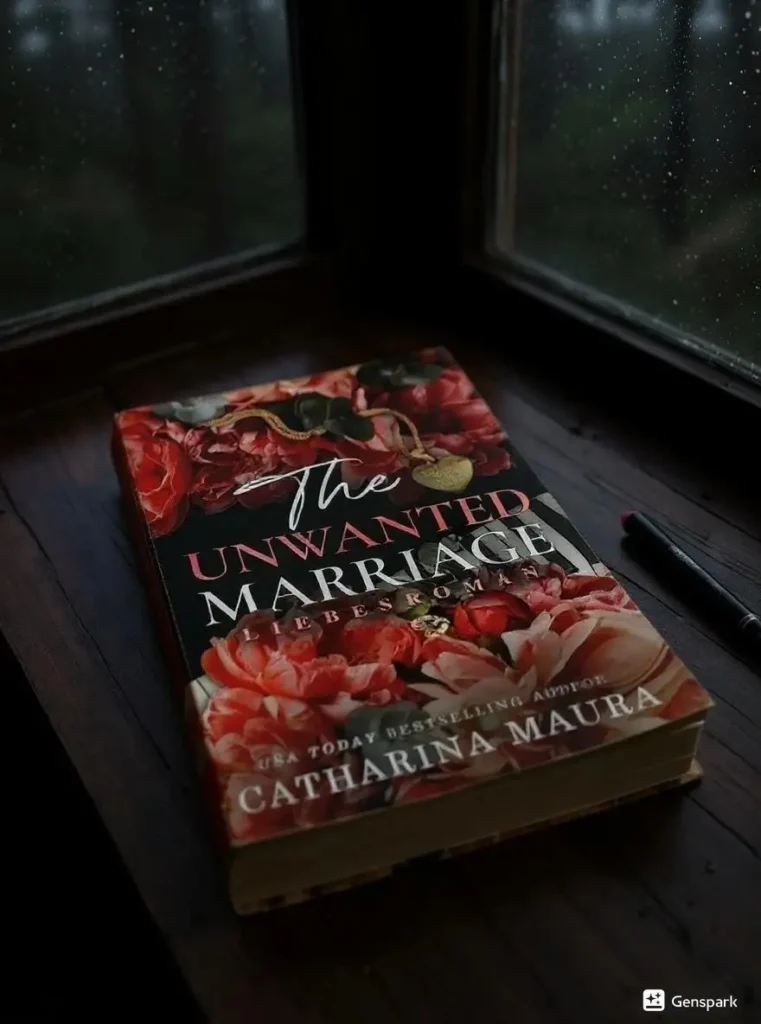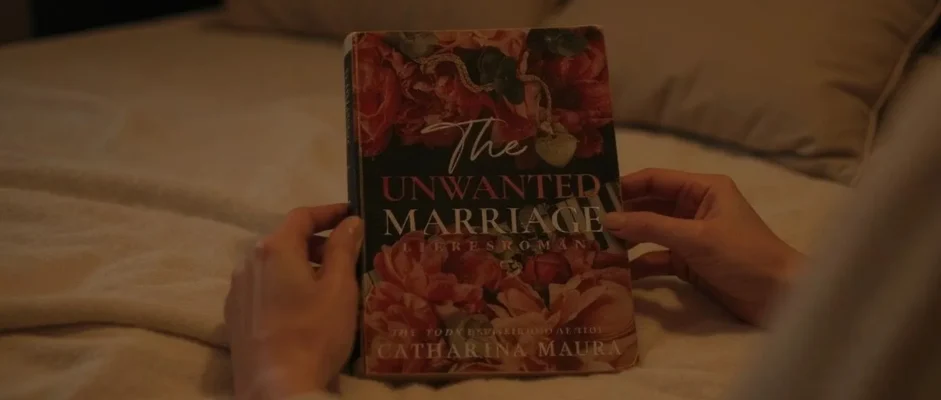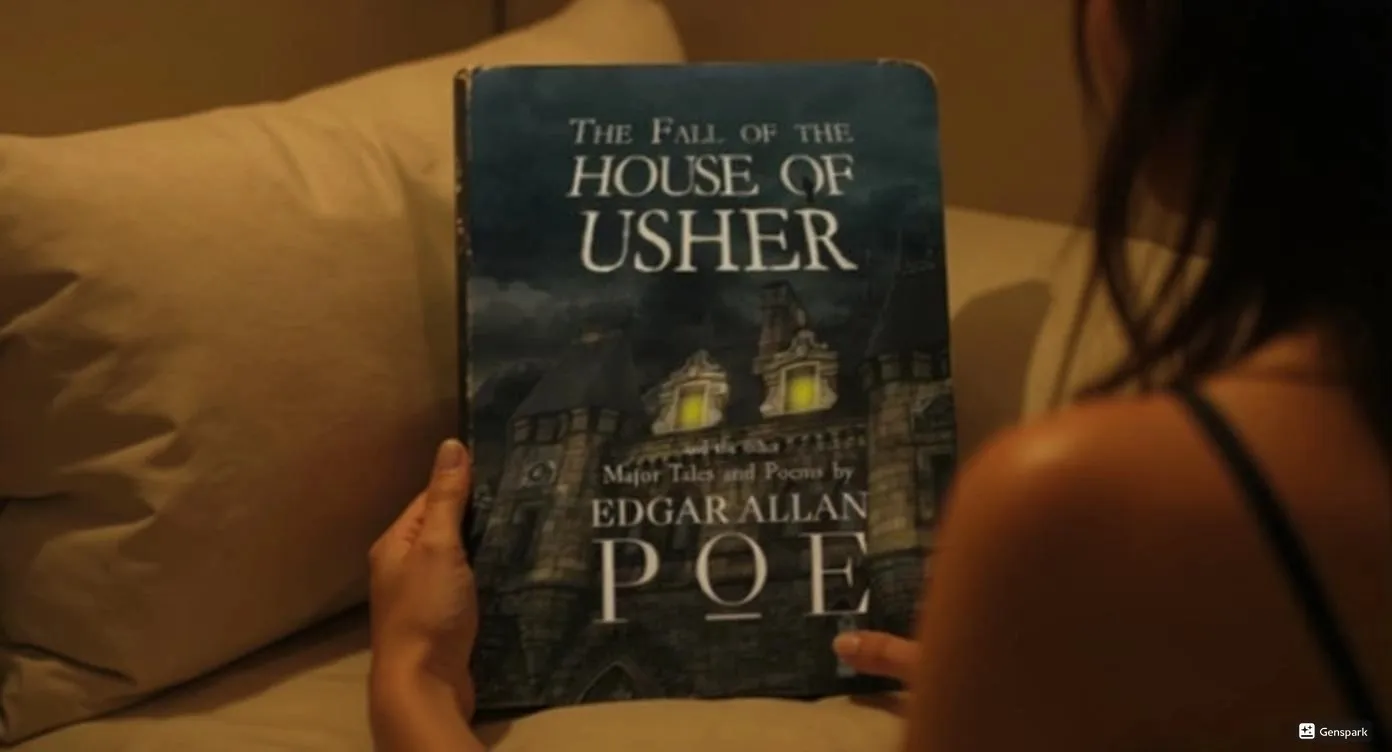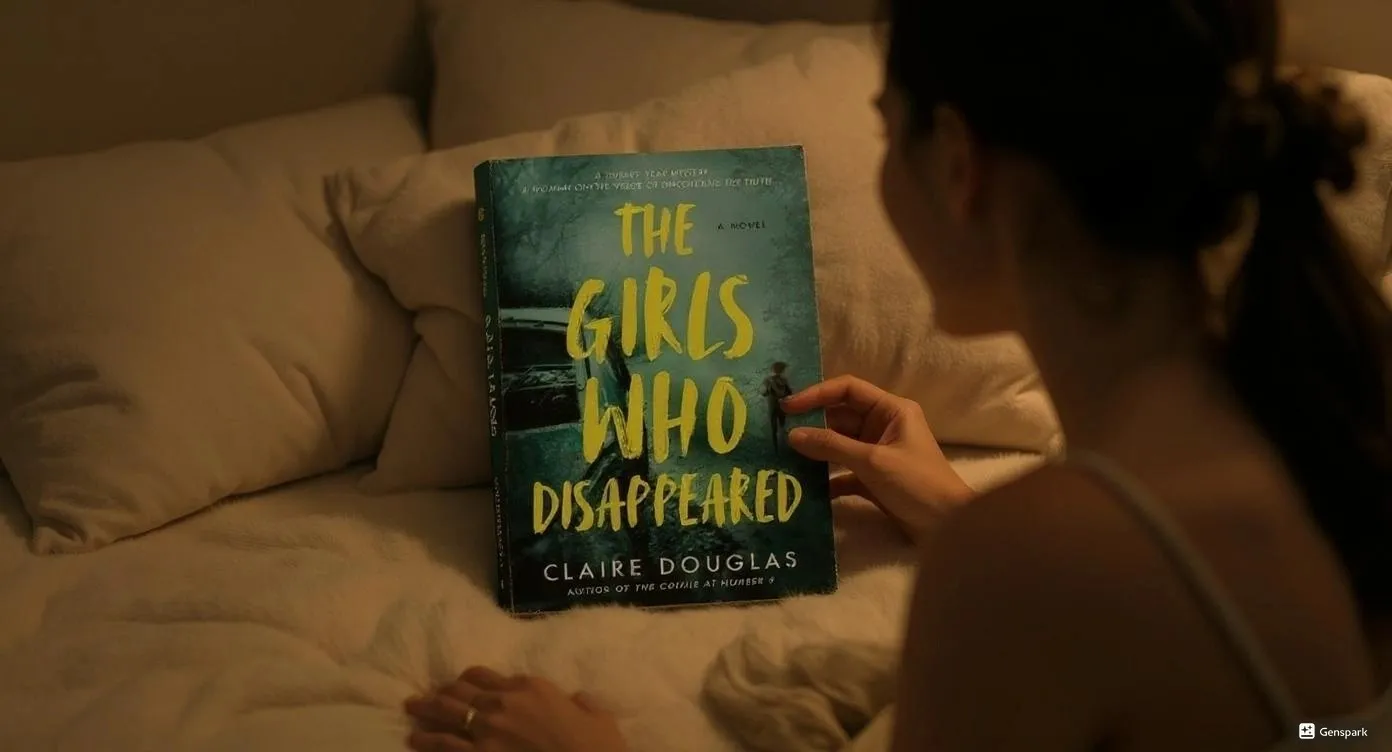I grabbed “The Unwanted Marriage” at 2:47 AM during a sleepless Tuesday night, thinking I’d read one chapter before attempting sleep again. Seven hours later, I sat in my kitchen chair, coffee cold, mentally destroyed by what Catharina Maura had just put me through.
This arranged marriage romance follows Faye, a pianist trapped in a childhood engagement, and Dion Windsor, who would rather burn his fortune than marry the one woman who could shatter him completely.
I slammed the book shut twice – once at page 89 when the childhood trauma reveal hit, and again at chapter fifteen when I realized I was ugly-crying over fictional characters at dawn. After reading romance novels for fifteen years, I can say this book made me question everything I thought I knew about second chances and forced proximity.
Maura’s writing gripped me so hard I forgot to eat breakfast. The story tackles childhood trauma, healing, and the twisted dynamics between two people who’ve been running from each other since they were kids. I’ve read thousands of arranged marriage romances, but this one made my chest tight with anxiety and hope in equal measure.
The author creates an atmosphere so emotionally charged that I had to put my phone on silent because I kept getting distracted by the intensity. What makes this book special is how Maura refuses to sugarcoat the psychological damage that comes with forced marriages while still delivering the romance that made me text my book club at 4 AM.
Key Takeaways
I learned that healing doesn’t follow Pinterest timelines, and sometimes the person you’re desperately avoiding is exactly who your broken pieces need.
Maura shows how childhood trauma shapes adult relationships in ways that make you want to call your therapist immediately.
The power dynamics between wealth and vulnerability create realistic complications that made me think about my own relationship patterns.
Communication becomes the foundation, but it takes raw courage to be vulnerable with someone who witnessed your worst childhood moments.
The story proves arranged marriages can work when both people fight for each other instead of against their circumstances.
Basic Book Details:
- Publishing Information: February 2023 by Catharina Maura (Self-Published)
- Genre: Contemporary Romance, Arranged Marriage, Billionaire Romance
- Plot: Childhood-engaged couple forced to marry despite years of mutual avoidance
- Series Information: Book 3 in The Windsors Series
- Page Count: Approximately 350 pages
- Main Characters: Dion Windsor (billionaire heir with severe trust issues), Faye (pianist and abuse survivor who plays Chopin when she’s breaking apart)
Book Overview And Series Context
“The Unwanted Marriage” sits as the third book in Maura’s Windsors series, and I need to warn you – it’s emotionally brutal. The trigger warnings for parental loss, abuse, and infidelity aren’t decorative. They’re necessary preparation for the psychological deep dive you’re about to take.
I found myself needing coffee breaks during the heavier scenes because the emotional intensity made my heart race. Maura doesn’t handle trauma lightly – she explores the realistic aftermath of childhood damage with surgical precision. Faye’s journey from victim to survivor feels authentic, never rushed for plot convenience.
This can be read standalone, though I recommend starting from Book 1 for maximum emotional impact. The Windsor family trauma threads through all stories, and understanding Dion’s previous struggles adds depth to his character arc. Each book focuses on different siblings dealing with generational trauma and corporate drama.
Character Development And Psychological Depth
Dion’s character development made me want to shake him and hug him simultaneously. He’s not your typical alpha billionaire – he’s a genuinely damaged man who uses emotional distance as armor. His trauma responses feel real, from hypervigilance to his complete inability to trust his own feelings about Faye.
I highlighted this quote: “She was never meant to affect me in this way, yet here I am, on my knees for her, desperate to take away her pain.” Watching Dion wrestle with secrets that could destroy Faye while being unable to let her go created the kind of internal conflict that kept me reading past my bedtime.
Faye’s evolution from someone who believes she’s fundamentally unwanted to a woman who demands respect made me cheer out loud on the subway. Her piano playing serves as both escape and empowerment – Maura uses music as a metaphor for emotional healing that actually works. When Faye plays Rachmaninoff during her breakdown scene, I felt every note.
Romance Development And Emotional Execution
The ten-year age gap between Faye and Dion adds realistic complexity to their power dynamics. Maura doesn’t romanticize the problematic aspects – she shows how the age difference affected their childhood interactions and continues influencing their adult relationship. The consent considerations are handled thoughtfully, with both characters struggling between choice and resignation.
The forced proximity trope gets fresh treatment here. Instead of instant attraction, we watch two people trapped together confronting uncomfortable truths. Their communication patterns shift from avoidance to tentative honesty to raw vulnerability in ways that made my chest ache.
I loved this line: “My wife doesn’t lift a finger in our own home — I’ll be damned if I let her lift one in yours.” Watching Dion’s protectiveness evolve from duty to genuine devotion felt authentic rather than convenient.
Writing Style Analysis
Maura’s prose technique strikes perfect balance between accessibility and emotional depth. Her dialogue carries subtext that made me reread conversations looking for hidden meanings. The dual POV structure gives equal weight to both perspectives without losing narrative consistency.
The pacing kept me addicted – building tension gradually while allowing emotional beats to breathe. Each chapter adds another layer to the central conflicts while slowly peeling back defenses. When emotional breakthroughs happen, they feel earned rather than convenient.
Multiple readers praise the cohesive, fluid writing style, and I agree completely. Maura’s sentences flow seamlessly, pulling you deeper into the emotional landscape without calling attention to the craft itself.

Strengths And Weaknesses
The character development is phenomenal. Both Dion and Faye feel like real people with complex motivations and believable flaws. The emotional authenticity sets this apart from typical billionaire romance – trauma responses and healing journeys feel grounded in psychological reality.
The arranged marriage trope gets genuinely fresh treatment. Instead of relying on tired clichés, Maura explores the ethical complications and psychological damage of forced marriages. This intellectual honesty elevates the entire story.
However, the trauma content can be overwhelming. While handled with care, the emotional intensity requires significant energy to read. Some secondary Windsor family members feel underdeveloped compared to the main couple. The resolution feels slightly rushed after the careful buildup – I wanted more time with their happiness.
Final Verdict
“The Unwanted Marriage” delivers exactly what it promises – an emotionally intense arranged marriage romance that respects both genre conventions and reader intelligence. This isn’t light escapism. It’s a deep dive into trauma, healing, and messy human relationships that made me question my own emotional patterns.
Maura could have glossed over the darker aspects of arranged marriage, but she chooses to explore them fully. This commitment to emotional truth makes the romantic payoff feel completely earned. After finishing, I immediately ordered the rest of the series and texted three friends demanding they read it.
I recommend this to readers who loved “The Hating Game” by Sally Thorne or “Beach Read” by Emily Henry – books that blend romance with substantial emotional themes. Perfect for anyone wanting romance novels with genuine psychological depth alongside the steam.
Rating: 8/10 – A book that will stick with you long after the last page.
Sip The Unknown—Discover Stories You Never Knew You’d Love!
Dionysus Reviews Has A Book For Every Mood
Biography & Memoir
Fiction
Mystery & Detective
Nonfiction
Philosophy
Psychology
Romance
Science Fiction & Fantasy
Teens & Young Adult
Thriller & Suspense
Frequently Asked Questions
What specific trauma themes should readers prepare for emotionally?
The book includes intense content around parental abandonment, childhood emotional abuse, and psychological manipulation within family systems. Faye’s abuse history isn’t just backstory – it actively affects her present-day interactions and self-worth throughout the entire narrative. The trauma isn’t exploitative, but it’s central to character development and requires emotional preparation from readers.
How does Dion’s character differ from typical billionaire romance heroes?
Dion breaks the alpha billionaire mold by being genuinely psychologically damaged rather than just emotionally unavailable. His wealth can’t fix his deepest wounds, and his protective mechanisms aren’t romantic – they’re survival strategies that hurt both him and Faye.
He keeps secrets that could destroy Faye while being unable to let her go, creating realistic internal conflict rather than contrived misunderstandings.
What makes Faye’s piano playing significant to the overall story?
Faye’s relationship with music serves as both emotional escape and empowerment tool throughout her character arc. Maura uses specific pieces – like Chopin during breakdown moments and Rachmaninoff during healing scenes – as metaphors for Faye’s emotional journey.
The piano becomes her voice when words fail, and her musical choices reflect her psychological state in ways that add depth beyond typical romance characterization.
How does this book handle the ethical problems of arranged marriage?
Rather than romanticizing forced marriage, Maura explores the genuine psychological damage and consent issues involved. Both characters struggle with whether they’re choosing each other or simply accepting fate.
The book shows how arranged marriages can harm children before they understand what marriage means, and addresses the power imbalances created by wealth, age, and family expectations without making excuses for problematic dynamics.
What distinguishes this from other Windsor series books?
Book 3 is emotionally the most brutal installment, dealing with heavier trauma themes than previous books. While other Windsor novels focus on corporate intrigue and family drama, this one dives deepest into psychological healing and childhood damage.
The emotional intensity is higher, the character development more complex, and the trauma content more central to the plot than in earlier series entries.









